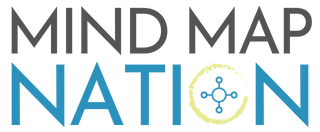What Can We Learn from the OpenAI Fallout?
It seems like the tech world has turned upside down overnight:
OpenAI's CEO Sam Altman ousted, staff in revolt, and in a surprising turn of events, Altman joins Microsoft. The Internet is on fire with hot takes. People are wondering what these events mean for the future of AI and society at large.
Here’s the bottomline: this story will only keep twisting.
The peanut gallery is going to keep blabbing away because modern news is designed to keep you glued to the screen without providing anything of real value.
It just cranks out more anxiety to dig you into a deeper content hole.
So how do you escape this noise trap without being blindsided by actually important signals?
The ancient Stoic philosopher Seneca had the answer:
"You should be extending your stay among writers whose genius is unquestionable, deriving constant nourishment from them if you wish to gain anything from your reading that will find a lasting place in your mind.”
In other words, it’s far more effective to drill down into one reliable source to intentionally get what you need and get out.
More importantly, to absorb the writer’s thinking process, which has much longer lasting benefits than binging Twitter.
I turned to Ben Thompson’s OpenAI’s Misalignment and Microsoft’s Gain. It’s a dense read, especially for non-tech industry insiders, but if you take the effort to look up unfamiliar terms or ask AI to clarify some points, Q&A mind map style, you’ll come away with a much better understanding of not only current events but how 2nd order effects will unfold.
From this one article, I learned:
OpenAI’s origins as an altruistic nonprofit and how Sam Altman and Elon Musk’s actions shaped it to become increasingly commercialized.
This event signals to the market that a nonprofit can’t manage an AI platform company.
Sam Altman might not be as altruistic as we thought if he lost the trust of his board, and the importance of tying power with monetary incentives and accountability.
The most valuable type of company is a platform company, and the best products need no selling. Instead, people will find ways to use it if it’s useful enough.
Big tech firms’ (Microsoft, Google, Apple, Meta, Amazon) innovation strategy isn’t to invent, but to acquire or fast copy startups.
This event could trigger further consolidation of AI platforms, while increasing the proliferation of AI app companies that use cloud services like Microsoft Azure, Amazon AWS, and Google Cloud.
Basically, there’s actually less downstream disruption on the company side because tech’s oligarchy remains in place. The startup community’s fear before was that OpenAI with the release of Custom GPT’s would simply absorb all “AI wrapper” companies.
This is now less of a concern given Microsoft is more interested (or rather its business model) in selling its enterprise products and services than owning downstream use cases. That said, end user disruption will continue as AI tool companies continue to find more automation use cases.
Finally, and most importantly, is the fact that a company that’s building smart machines is as messy and flawed as the humans who run it.
Here’s the snippet of Insights that I gleamed from my mapping of the article.
Armed with these insights and fundamental principles as lens, I can then wade into the noisy social media and news space without fear of being swept away. Any new information I come across is cross examined or added to this mental map.
For example, this Instagram post might make us believe that OpenAI’s board is clearly in the wrong to fire Altman. I mean 505 out of 700 employees can’t be wrong right? I mean, just look at these happy smiling faces!
However, if you take into account that the company is worth at least $29 billion, and that this weekend’s events could lead to a drastic decrease in employee equity value, then it makes sense that folks would be up in arms.
It also begs the question in regards to why the remaining 195 employees stand by the board. What’s their story?
Regardless of the answer, it’s the question or rather the questioning mindset that matters.
Creating a mind map of a reliable source might be time consuming, but it’s far faster for cultivating deep understanding (and curiosity) than indulging in the 24-hour news cycle. At least I can promise that it’ll be better for your mental health.
If you want to know how I built this learning mind map from scratch to upgrade my mental OS, be sure to check out my tutorial video this weekend! 👊🏼
*Ben Thompson is one of the best tech strategists on the planet. I once spent 6 months over a sabbatical dissecting and reverse engineering his thinking process. Adding him to my Council of Advisors has been a huge benefit in my tech career.
Make the most of your mind maps
Thanks for reading this article. If you found it useful, you can get a new mind map in your inbox every week. Epiphany is your dose of structured thinking and ordered chaos.




